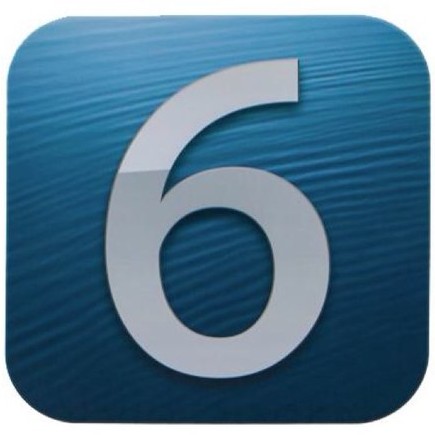
Apple iOS 6 launches September 19
If you've got iPhone 4 or 4S, recent iPod touch or one of the two recent iPads, Apple will give you iOS 6, and you won't wait long. The Cupertino, Calif,-based company formally announced the release date, September 19, during a media event today.
New iOS 6 features include FaceTime video over cellular, Facebook integration, Passbook for buying movie tickets and other passes, shared photo streams and new maps app, among others. Apple released a developer preview in June. Perhaps most notable among the new features is Apple's homegrown maps app, replacing the one long provided by Google.
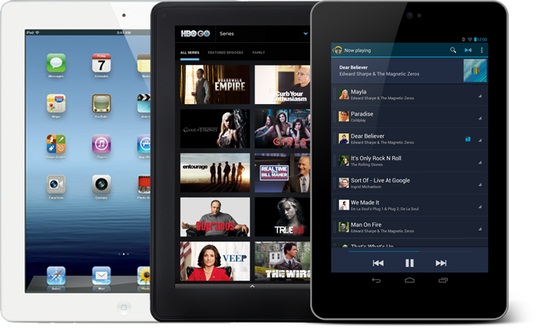
Cumulative Android device sales push past iOS for first time
In what can only be described as a turning point for post-PC operating systems, cumulative Android device sales now exceed iOS, and in a shorter time period. Today, during a special media event, Apple reduced the cumulative number of iOS sales to 400 million -- that would be since iPhone's debut in June 2007. But yesterday, Google put Android sales at 500 million, from the G1's launch four years ago this month. The days of iOS' perennial lead are over.
Android has been on the catch-up track for better part of the year. At the end of June cumulative iOS shipments were 410 million, according to Apple. Why CEO Tim Cook put the number at 10 million less today is anyone's guess. Days before the quarter ended, Google put cumulative Android shipments at 400 million. A few months earlier: 365 million and 300 million, respectively. Daily Android activations now total 1.3 million, up from 900,000 in June, according to Google.

I would end my boycott if Apple stopped bullying others
Apple is on my mind again, with the company hosting a big media event tomorrow presumably to unveil iPhone 5. I'm not seriously thinking about buying the smartphone, certainly not sight unseen. I'm super satisfied with Galaxy Nexus -- if not, I'd move to a LTE Android, perhaps HTC One X or Samsung Galaxy S III. Rather, iPhone 5 is good time to assess my personal Apple boycott, where I sold off all my fruit-logo gear in protest of patent bullying.
Until July, I was a long-time Apple user, starting with the December 1998 purchase of the original Bondi Blue iMac. Then about six months ago, Apple's persistent competition-by-litigation tactics finally made me mad. I also had grown sick of Apple media bias that borders on the insane. How crazy? Yesterday, Washington Post explained "How Apple’s iPhone 5 could singlehandedly rescue the US economy". Bad is worse -- today, extending this economic lift to US presidential elections, Nextgov (a product of the National Journal Group) asserts: "How the iPhone 5 could help re-elect Obama". These are people I really don't want to associate with. (Say doesn't the president use BlackBerry?)
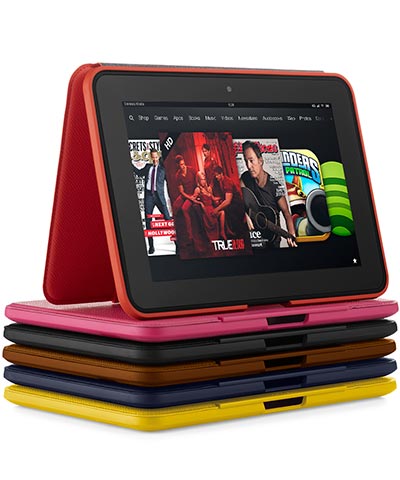
Kindle Fire HD burns Microsoft more than Apple
Following Amazon's Kindle Fire HD announcement, a reader reminded me of a prediction I made at the start of the year: "If Apple gives up its position of industry leadership in 2012 the only company capable of assuming that role is Amazon.com". I stand by those words -- Amazon is really bringing the fight to Apple -- but the most important part is "if Apple gives up its position", which it clearly hasn’t, at least not yet. The real loser here, in fact, is not Apple but Microsoft.
I could be wrong about this but I don’t recall any pundits (me included) predicting that Amazon would introduce a larger format tablet, yet that’s exactly what they did. The larger Kindle Fire HD with its built-in content and app ecosystem (and that killer 4G data package!) is a viable iPad competitor at a terrific price and puts real pressure on the Cupertino, Calif.-based company. Will Apple match the price? I don’t think so. That’s not the game they want to play. But the game is on, nevertheless, and users can only benefit from competition.
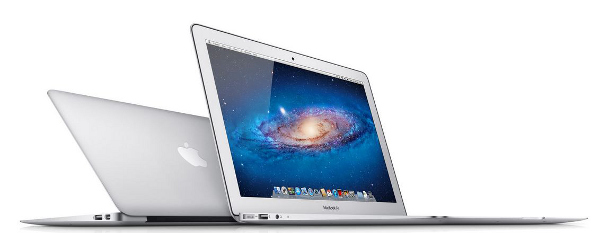
Is your Workplace adopting Apple products?
Mac OS virtualization software company Parallels on Tuesday revealed a new crowdsourced project called the "Apple-in-the-Workplace Barometer", which lets users fill out a questionnaire about their workplace to create an overall view of how the business world is changing in terms of Mac adoption, acceptance of personal devices ("BYOD"), and of course, use of desktop virtualization.
The project tracks responses from IT professionals, managers, and knowledge workers, and plots their responses on an X-Y axis of Apple Support (current mobile policies) over Apple Adoption (opportunities for expansion). It is broken into four quadrants, "Players" versus "Laggards" and "Leaders" versus "Rookies." Obviously because it's a project from Parallels, it is primarily interested in creating a clearer picture of Apple's place in enterprise today.
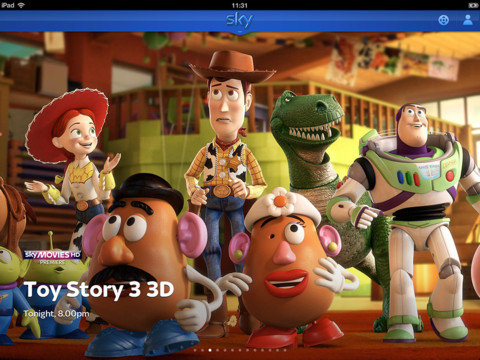
Sky+ 4 turns your iPad into a TV remote
When you’re watching TV the remote control seems to have a life of its own, often resulting in it disappearing when you decide you want to switch channels. Being somewhat larger than a standard Sky remote, your iPad is far less likely to go missing, so wouldn’t it be great if you could use the tablet you’re using to check emails while you watch TV to control your Sky+HD box? The release of Sky+ 4.0 means that this is exactly what you can now do.
Getting up and running is very simple -- just make sure that your Sky+HYD box and your iPad ate connected to the same network and you’re ready to go. While the app itself is not new, many of its existing features have been updated and there are plenty of new options that have been added as well. The big new feature is remote control. Using gestures you can control the playback of whatever you’re watching, tapping to play and pause, and swiping to skip back and forth.
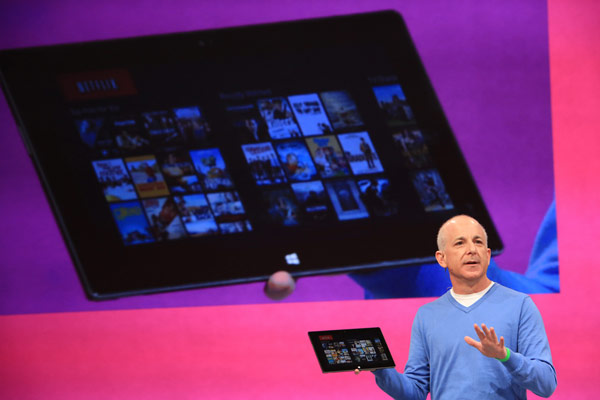
How much would you pay for Microsoft Surface?
End of summer typically means slower news cycle and with it more ridiculous rumors and positively pathetic punditry than ever. For example, the Apple Fanclub of bloggers and journalists squirms and squeals like a pack of hogs rolling in fresh mud -- they can't get enough of the Samsung trial under way in Northern California. Then there is Microsoft and the mini-revolt over the Surface tablet. Acer whines, Toshiba gives up Windows RT plans and everybody who is no one guesses just how low Microsoft will sell its tablet.
The problem is one of conflicting objectives. Apple's iPad sells faster than bacon cheeseburgers (let's keep to the pig metaphor shall we) during the County Fair. Total shipments topped 85 million in July -- in about 27 months. Today, IHS iSuppli put Apple's second quarter tablet market share at 69.6 percent globally -- that's up 44.1 percent, or 11.5 points, sequentially. Yeah, from 58.1 percent in Q1. (Pop those eyes back your head now.) Meanwhile, Windows starts essentially from zero. Microsoft can't close distance on iPad fast enough, and sure-fire, proven way is offering a compelling alternative for much less.
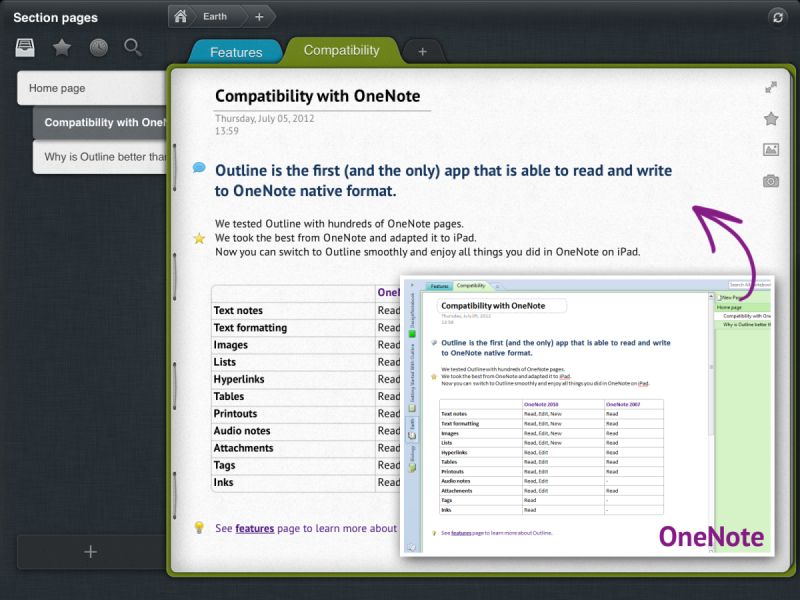
Third-party OneNote app does what Microsoft can't
At the end of 2011, Microsoft released Office OneNote for iPad, bringing the cult favorite note-taking application to all of Apple's devices.
But major shortcomings with the freemium OneNote for iPad app have earned it a significant number of negative reviews in the iTunes App Store. Third-party iPad app Outline+, released at the end of July, seeks to provide fixes to these complaints. So far, the app tackles two of the major issues plaguing the iPad version of OneNote: syncing and formatting.
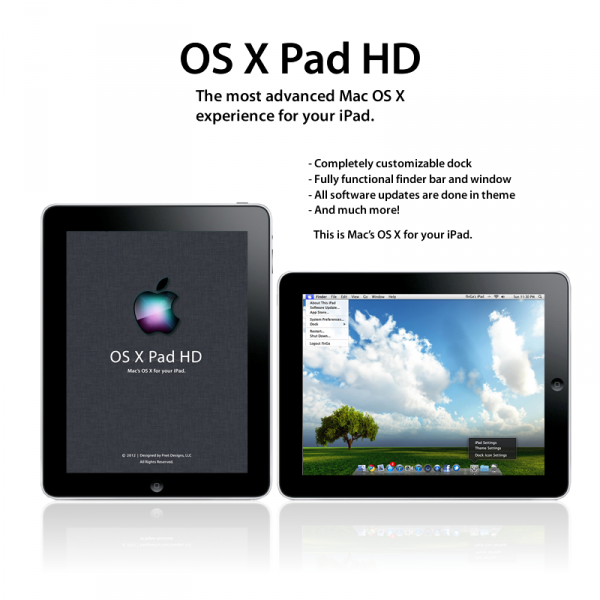
Turn your iPad into a Mac tablet
If Surface is the hit Microsoft hopes it will be, there’s the possibility that Apple might follow suit with an OS X powered MacPad at some point in the future (well, we can hope, can’t we?). The good news is you don’t actually have to wait for Apple, before trying out OS X on a tablet, you just need OS X Pad HD.
The advanced theme from Fnet Designs transforms your iPad into a Mac tablet with a fully functional Finder bar, and lets you add apps to the dock and change its style to match any of the 70 available wallpapers (or your own), create sidebar folders for Finder windows, and access settings and customization options through the System Preferences Menu. All software updates are applied directly through the theme.

I need a 15-inch tablet to replace my laptop
Some people don’t like tablets, while others defend them. I’ve often wondered why people seem so crazy about them, but that is mostly because what I do requires me to run Windows, and Windows-based tablets (aka slates in the Microsoft Store) are neither popular nor cheap, especially with the hardware configuration that I need.
I say need, not want, because it is mission-critical that I finish the task at hand in a decent amount of time, and to do that requires powerful hardware. But there’s another reason as well, and it involves the size of the display. In one of my previous articles, I wrote that real work can’t be done on a tablet and I gave five reasons as to why it’s (still) true. Today, I’d like to add the sixth reason to that list: Most tablet displays are too small.

What does Apple REALLY want from Samsung?
Answer: One-hundred percent of all profits gained from Sammy's smartphones and injunction barring sales of future models. Is that clear enough for you? Because it might not be from the stilted news stories about the Apple-Samsung trial under way here in California. Apple feels entitled to everything. That's how highly the company's top-brass thinks about their intellectual property and how little they do about Samsung's.
Instead of reading about how much Apple demands, blogs and news reports focus on the puny 2.4 percent per phone Samsung asks Apple for so-called essential patents or the extent of copying as told by the fruit-logo company. The story you read everyday about the Apple-Samsung trial is a good yarn, but there's enough urban legend to warrant a Snopes.com entry.

Chinese 'kidney for iPad' trial starts
Nine people have gone on trial in the central province of Hunan, China, accused of illegal organ trading and intentional injury after a 17-year old high school student sold one of his kidneys to buy an iPad and iPhone. The teenager, identified in a report by the state-run China Daily as Wang Shangkun from the Anhui province, was allegedly recruited through a chat room by one of the defendants, and paid 22,000 Yuan ($3,456) for the organ, which was removed in an illegal transplant operation by a team from a local hospital. The kidney was sold by the gang behind the trade to an unknown buyer for 150,000 Yuan ($23,566) and a further $10,000 in cash, netting them a profit of around $30,000.
While to Westerners $3,458 seems a shockingly low price to sell a kidney for (especially considering how much the recipient was willing to pay), it’s important to put that figure into context. The average wage paid to workers assembling Apple products at Foxconn is around 2,200 Yuan ($346) a month, so the figure Wang received would have equated to nearly ten months’ salary for someone working at the plant -- a colossal amount of money to a young man still in full-time education.
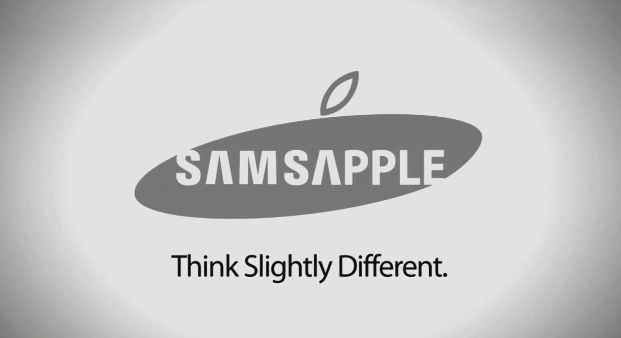
10 interesting things we’ve learned from the Apple vs. Samsung trial (so far)
We’re only into the second week of the "patent trial of the century" but we’ve already been granted an unprecedented peek behind the curtain into the notoriously secretive world of Apple Inc. Here, in no particular order, are ten of the most fascinating reveals from the trial to date.
Steve Jobs was open to the idea of a seven inch iPad

Apple's dock connector update may trigger refresh of entire product line
While the focus on Apple's next big thing has surrounded the likely release of the iPhone 5 next month, the Cupertino, Calif. company's decision to change the dock connector may affect its entire product line, a new report claims.
Rene Ritchie at iMore says sources told the publication that the entire iOS device lineup will receive a refresh when the iPhone 5 launches, rumored to occur on September 12. The report claims that date will see a refreshed iPad, new iPod nano and iPod touches, the iPhone 5, and even the debut of the 7-inch iPad.
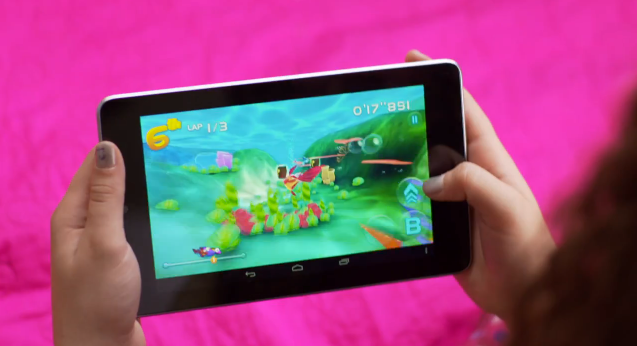
Why does Google subsidize Nexus 7?
To understand why Google subsidized the Nexus 7, you have to first understand what makes the tablet market unique from all other forms of personal computing. All personal computing devices fall into three major categories: PC, cellphone, and tablet (with possibilities for more in the future such as “smartglasses”, which Google and others are developing).
The PC market is mature, there have been very few changes since the nineties; functionality has steadily improved and the only big change was the advent of the laptop, which changed the form, although, it didn’t change the two main players: Apple and Microsoft, with Microsoft’s hardware manufacturers also playing an important role. The players in the PC market have changed little (sure HP bought Compaq and IBM sold out to Lenovo). It would take a truly revolutionary product to change anything even though there have been attempts -- the constant presence of Linux, and the recent (relatively) introduction of Chromebooks for example -- none have have managed to have any impact.
